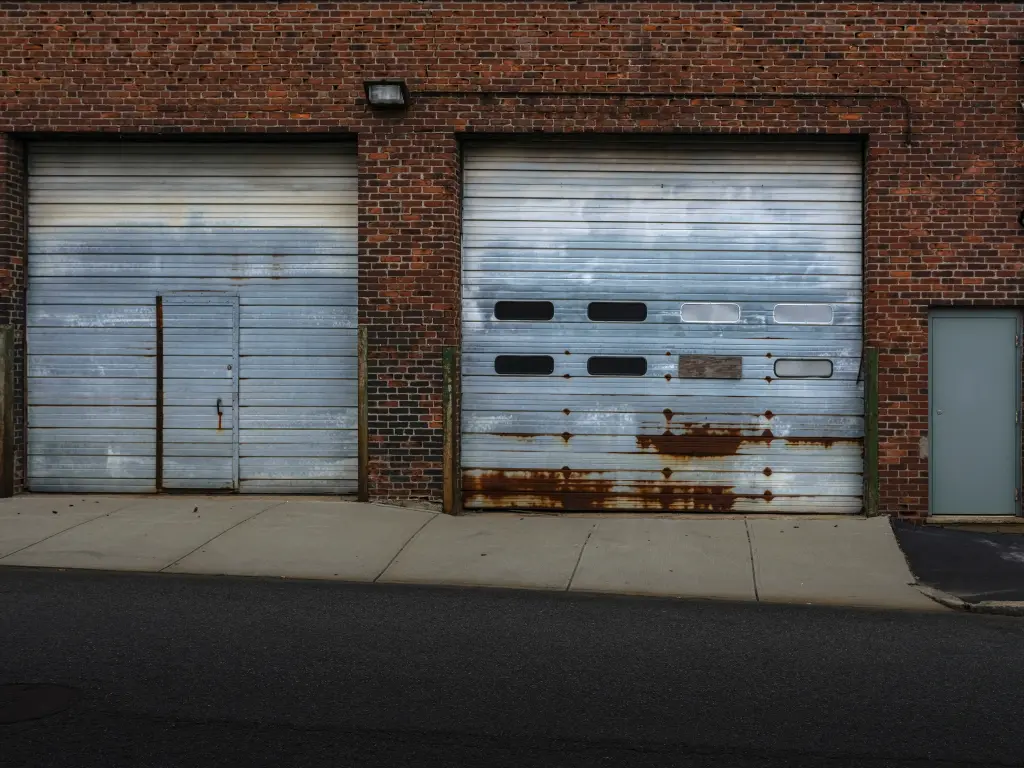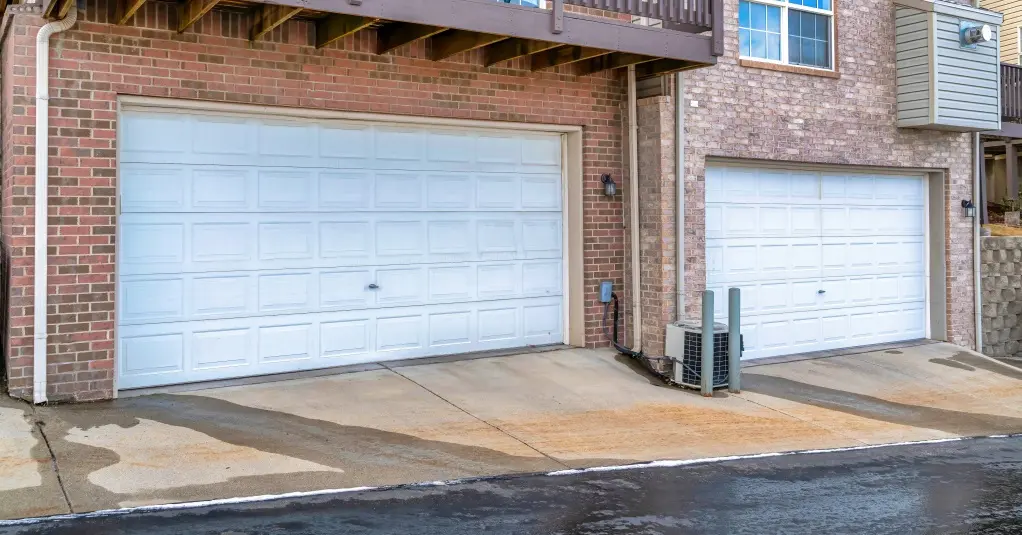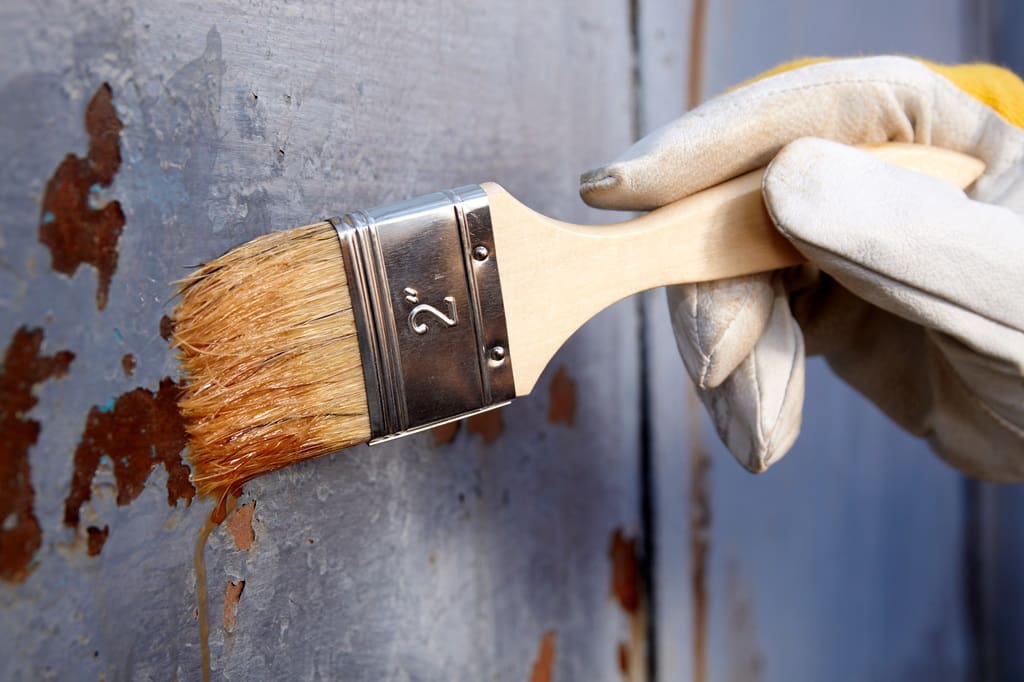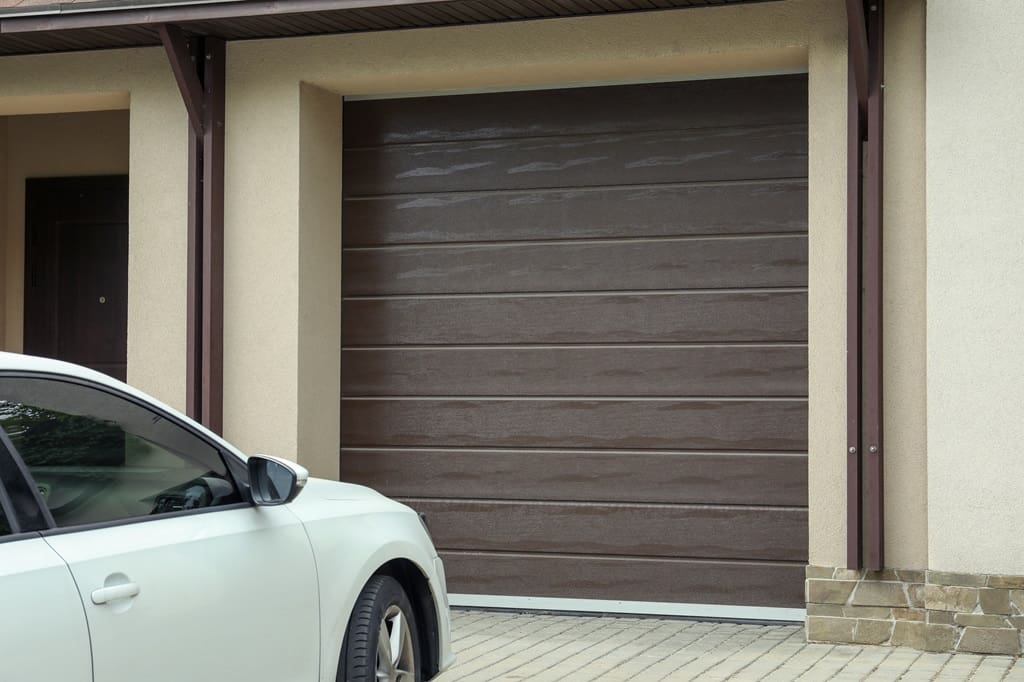How to Deal with Garage Door Rust: Prevention and Removal Techniques
Is your garage door showing telltale signs of rust? This common issue happens when metal meets moisture and oxygen, causing it to oxidize and deteriorate. Road salt, salty air, and even humid climates can speed up this process, ultimately leading to garage door replacement or repair.
Rust not only detracts from the appearance of your garage door, but if left unchecked, it can also weaken its structure and functionality. But don't worry – this detailed guide is here to help you understand, tackle, and prevent rust, ensuring your garage door stays in top shape.
Why Rust Demands Your Attention

Rust isn't merely an aesthetic concern; it's a force that gradually undermines the strength of your garage door. Over time, it can create holes, leading to significant damage and expensive fixes, or even the need for a complete door replacement.
Rust prevention is important because it:
- Extend the Life of Your Garage Door: Rust is a common adversary of metal components, and your garage door is no exception. By taking preventive measures, you can significantly slow down rust formation and ensure your door serves you well for years to come.
- Maintain Structural Integrity: Rust weakens your garage door's ability to withstand everyday wear and tear, as well as extreme weather conditions like strong winds. Preventing rust helps keep your door strong and secure.
- Preserve Your Home's Curb Appeal: Your garage door plays a significant role in your home's overall appearance. Rust stains and corrosion can create an eyesore, impacting your home's curb appeal.
- Save on Repairs: Dealing with extensive rust damage can be a financial burden. Repairing or replacing rusted parts like hinges, tracks, and springs can quickly add up, making prevention a cost-effective strategy.
- Ensures Smooth & Safe Operation: A rust-ridden garage door may struggle to open and close smoothly. Rust-induced friction can lead to noisy or jerky movements. In severe cases, components can even become stuck, posing safety hazards for you and your vehicles.
- Bolster Home Security: A garage door weakened by rust is more vulnerable to break-ins. Rust compromises the integrity of locks, hinges, and other crucial elements, making it easier for intruders to gain access.
What Causes Your Garage Door to Rust?
Understanding the causes of garage door rust is essential for homeowners to take preventive measures and save money on costly repairs or premature door replacement.
- Exposure to Moisture: When garage doors are exposed to moisture from rain, snow, or high humidity, it can lead to rust formation.
- Lack of Protection: A garage door without a proper protective coating is like a sitting duck for rust-causing oxidation.
- Scratches and Paint Damage: Even minor nicks and scratches expose the underlying metal to moisture and air, accelerating rust development.
- Condensation: When warm air meets the cold surface of your garage door, condensation forms. This moisture buildup contributes significantly to rust.
- Chemical Exposure: Exposure to certain chemicals, such as harsh cleaning agents or corrosive substances, can accelerate the rusting of the door.
- Poor Ventilation: Inadequate ventilation inside the garage can create a humid environment, promoting rust growth on the garage door.
- Salt and Coastal Air: If you live near the coast or in an area with heavy salt use on roads, the salt in the air and on surfaces can quickly corrode your garage door.
- Neglected Maintenance: Lack of regular cleaning, inspection, and maintenance allows conditions for rust to develop and worsen over time.
If you can identify and address the causes of garage door rust, you can save money and avoid unnecessary hassles. Moisture, scratches, environmental factors, poor ventilation, and exposure to harsh substances are all potential culprits of rust formation.
Proactive Steps to Prevent Rust

Let's take a look at the most effective ways to prevent rust from damaging your garage door:
Regular Cleaning and Inspection
One of the best ways to prevent rust is through maintenance, such as garage door tune-ups. This includes keeping your garage door clean and free from corrosive substances like road salt and other debris.
Cleaning Your Garage Door
- Warm Water and Soap: Wash your garage door with warm water and mild soap every few months. This helps remove dirt, dust, and other debris that can cause rust.
- Dry Completely: Always dry your garage door completely after washing to prevent moisture buildup.
Applying a Rust-Resistant Coating
Using a rust-resistant paint or coating can significantly extend the life of your garage door. Here’s how:
- Rust Resistant Paint: Choose a high-quality rust-resistant paint and reapply it every few years according to the manufacturer's instructions.
- Spray Paint and Paint Sprayer: For a smooth, even finish, consider using spray paint or a paint sprayer.
Lubricating Moving Parts
Don't forget to lubricate the hinges, rollers, and tracks of your garage door regularly. This will prevent friction and wear, which can expose bare metal and lead to rust.
Banishing Rust from Your Garage Door: A Step-by-Step Guide
Before you start removing rust, make sure to wear appropriate safety gear, including gloves and goggles.
You’ll need the following tools:
- Wire Brush: For scrubbing off loose rust.
- Steel Wool Pad: For finer scrubbing.
- Fine Grit Sandpaper: For smoothing the surface.
- White Vinegar: A natural rust remover.
- Auto Body Filler: For filling in any holes or deep rusted areas.
Step 1: Loosen the Rust:
Use a wire brush to remove loose rust from the surface of your garage door. Be gentle to avoid applying too much pressure, which can damage the metal.
Step 2: Apply White Vinegar
White vinegar is a natural rust-buster. Soak a cloth in vinegar and apply it generously to the rusted spots. Let it sit for about half an hour to work its magic.
Step 3: Scrub Again
After the vinegar has done its job, grab your steel wool pad or fine-grit sandpaper. Scrub the areas until the rust is completely gone. Don't be afraid to apply a little elbow grease!
Step 4: Rinse and Dry
Rinse the treated areas with warm water to remove any residue. Then, thoroughly dry the surface with a clean cloth. This prevents further oxidation and prepares your door for the next steps.
Step 5: Rust Converter Magic (Optional)

If any rust remains, apply a rust converter. This handy product chemically transforms rust into a stable, paintable surface, ensuring a long-lasting repair.
Step 6: Patching Up
If rust has eaten through the metal, don't worry! Fill in any holes or deep pits with auto body filler. Follow the instructions on the product, and be sure to let it dry completely before moving on.
Step 7: Smooth It Out
Once the filler is dry, sand it down with fine-grit sandpaper until it's smooth and level with the surrounding surface.
Step 8: Prime and Protect
Apply a coat of primer to the repaired areas. This creates a good base for the paint and helps prevent future rust. Then, finish with two coats of rust-resistant paint, choosing a color that complements your home's exterior.
Choosing the Right Materials for a Rust-Free Garage Door

If you wish to prevent rust more effectively, you might want to consider the choice of material for the entire door:
- Steel Door: While susceptible to rust, steel garage doors coated with a rust-resistant finish offer exceptional durability and can withstand the test of time.
- Modern Door: Many modern garage doors are crafted from materials that naturally resist rust, making them a worry-free choice for homeowners in rust-prone climates.
In your battle against rust, these tools are your allies:
- Rust-Resistant Paints and Coatings: Invest in specially formulated products designed to shield your garage door from rust formation.
- White Vinegar: This common household item is a surprisingly effective natural rust remover.
- Auto Body Filler: When rust has caused deeper damage, auto body filler can help you repair and restore your door's surface.
Common Rust Repair Mistakes to Avoid
When tackling rust on your garage door, steer clear of these common missteps:
- Ignoring Early Signs: Don't let those small rust spots fool you. Left untreated, they can quickly spread and cause significant damage. Tackle them as soon as you notice them.
- Using Harsh Chemicals: Strong chemicals may seem like a quick fix, but they can harm your garage door's finish. Stick to gentler, natural rust removers like white vinegar.
- Skipping Routine Maintenance: Prevention is key! Make regular cleaning and inspection part of your home maintenance routine to keep rust from gaining a foothold.
When to Seek Professional Help

If your garage door is showing extensive rust damage, don't hesitate to call in the experts. A reputable garage door professional can accurately assess the situation and recommend the best course of action. Whether it's a simple repair or a full replacement, they have the expertise to ensure the job is done right.
And if you're not comfortable tackling rust removal yourself, a professional can ensure the job is done safely and effectively.
In Conclusion: Keeping Your Garage Door Rust-Free
Dealing with rust on your garage door doesn't have to be a hassle. With the tips and techniques we've shared, you can confidently tackle rust and keep your door looking its best. Remember, a little maintenance goes a long way in preventing rust from taking hold in the first place.
For professional assistance and expert advice, connect with Safety Garage Door. Our team specializes in garage door solutions, and we're here to help you restore your door's functionality and appearance.
Don't let rust get the upper hand. Contact us today to discover how we can help you achieve a rust-free, smooth-operating garage door system.
FAQs
How often should I check my garage door for rust?
It's a good practice to inspect your garage door every few months, and more frequently during wet or salty weather conditions.
Can I remove rust using household items?
Absolutely! White vinegar and baking soda are effective natural rust removers that you likely already have in your pantry.
What kind of paint should I use to prevent rust?
Choose a rust-resistant spray paint or a high-quality paint specifically designed for metal surfaces. This will provide a durable barrier against rust formation.
Is it possible to completely eliminate the risk of rust?
While completely preventing rust may not be feasible, regular maintenance and the use of rust-resistant coatings can significantly reduce the likelihood of it occurring.
Should I replace my garage door if it has rust?
If rust has extensively damaged your door and compromised its structural integrity, a replacement might be necessary. Consult a professional team like ours for a thorough assessment and expert recommendation.

.webp)
.svg)
